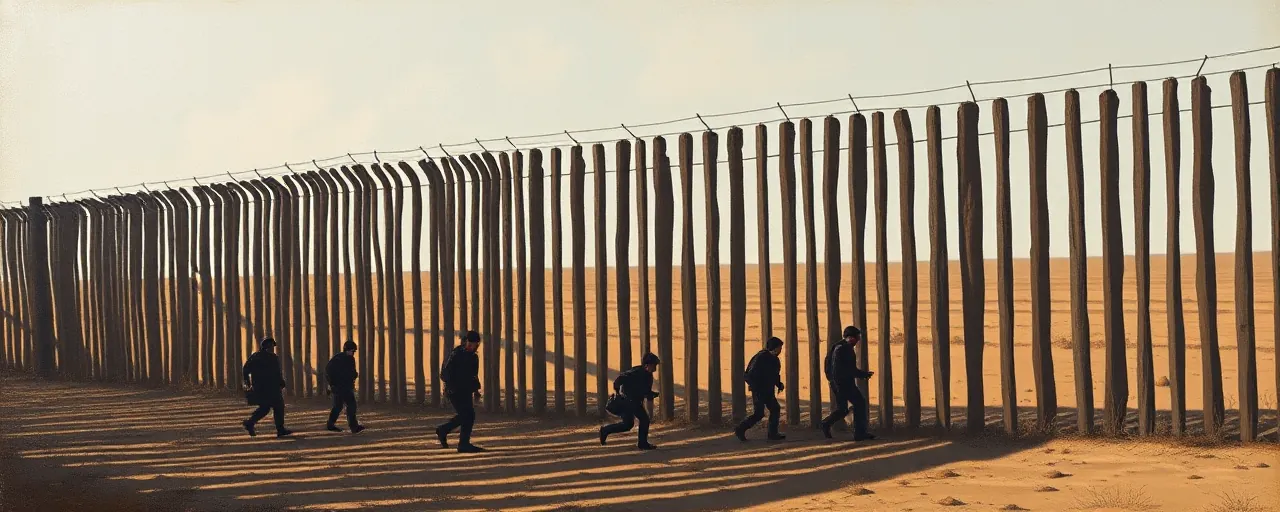A Monster Unmasked in Boston
Jean Morose Viliena, once the iron-fisted mayor of Les Irois, Haiti, thought he could outrun his bloody past. On March 28, a federal jury in Boston shattered that illusion, convicting him of visa fraud for lying his way into the United States. This wasn’t just a paperwork slip-up. Viliena concealed a trail of extrajudicial killings, political violence, and outright terror he inflicted on his own people. The U.S. Immigration and Customs Enforcement (ICE) investigation peeled back the layers of his deception, exposing a man who traded his mayoral sash for a green card built on falsehoods.
This case hits hard because it’s personal. Witnesses, brave enough to face their tormentor in court, recounted horrors that sound ripped from a dictator’s playbook. Viliena didn’t just govern; he ruled through fear, leading armed militias to crush dissent and silence anyone who dared challenge his grip on power. America isn’t a dumping ground for the world’s tyrants, and this conviction sends a loud message: our borders aren’t open to those who think they can hide their crimes behind a visa stamp.
The Blood-Stained Hands of Power
Viliena’s reign in Les Irois wasn’t politics as usual. Court documents paint a grim picture of a man backed by the Korega political machine, a group that wielded guns and machetes to enforce his will. Take July 27, 2007: after a witness testified against him in a local proceeding, Viliena retaliated with chilling precision. He led an armed posse to the man’s home, where they shot his brother dead and smashed his skull with a rock in front of onlookers. This wasn’t justice; it was a public execution meant to terrify.
Then there’s the April 2008 assault on a community radio station. Viliena, enraged by journalists daring to speak freely, unleashed his militia to shut it down. He pistol-whipped one man, ordered another shot, and left a third blinded by a bullet to the face. These aren’t isolated incidents; they’re the calling card of a thug who saw power as a license to maim and kill. Yet, just months later, he strolled into the U.S. Embassy in Port-au-Prince, swore he’d never touched violence, and walked away with a visa. That lie let him slip into America, a privilege he never deserved.
ICE Steps Up Where Others Falter
Credit where it’s due: ICE’s Homeland Security Investigations team in New England didn’t let this one slide. Alongside Customs and Border Protection and the Justice Department, they built a case that stuck. Michael J. Krol, ICE’s Special Agent in Charge, nailed it when he said Viliena’s fraud got unmasked thanks to witnesses who refused to stay silent. This isn’t just a win for law enforcement; it’s a victory for every American who believes our immigration system shouldn’t be a revolving door for human rights abusers.
The numbers back this up. ICE’s Human Rights Violators and War Crimes Center has over 180 active investigations and 1,945 leads on suspected violators from 95 countries. Since 2003, they’ve issued 79,000 lookouts and stopped 390 monsters at the border. That’s not a fluke; it’s a system working to keep our communities safe. Contrast that with the chaos in Haiti, where gangs killed over 5,600 people in 2024 alone, and you see why enforcement here matters. We can’t fix Haiti’s mess, but we can damn well keep its architects out.
The Left’s Blind Spot on Border Justice
Some voices out there, particularly from bleeding-heart corners, cry foul over ICE’s tough stance. They’ll argue it’s too harsh, that we’re punishing the desperate instead of offering refuge. Let’s cut through the noise: Viliena wasn’t a victim fleeing persecution; he was the persecutor. The idea that we owe sanctuary to someone who maimed and murdered his way to a green card is laughable. U.S. Attorney Leah B. Foley put it best: this country isn’t a hideout for criminals on the run.
History shows the stakes. From the Duvalier regime’s Tonton Macoute to today’s G9 gang federation, Haiti’s political violence has thrived on impunity. Those who excuse lax borders ignore the real cost: letting men like Viliena roam free here risks importing that same lawlessness. The Justice Department’s Human Rights and Special Prosecutions Section has prosecuted war criminals and torturers before, and they’re right to keep the heat on. Sympathy for migrants can’t mean turning a blind eye to monsters.
A Line in the Sand
Viliena’s conviction isn’t just a courtroom drama; it’s a wake-up call. America’s immigration system isn’t perfect, but it’s built on a principle worth defending: entry is a privilege, not a right. When someone like Viliena lies about a past soaked in blood, he doesn’t just break the law; he spits on the very idea of what this country stands for. Sentencing looms on June 20, 2025, and with up to 10 years in prison on the table, justice is closing in.
This fight’s bigger than one man. It’s about holding the line against those who think they can game our system and escape accountability. ICE, CBP, and the DOJ proved they’ve got the guts to take on the worst of the worst. For every Haitian migrant scarred by violence, men like Viliena are the cause, not the cure. We owe it to them, and to ourselves, to keep our borders a barrier to tyranny, not a welcome mat.
